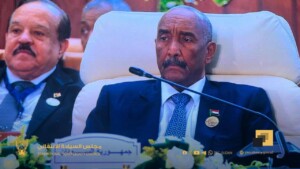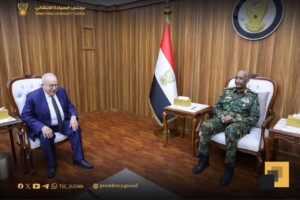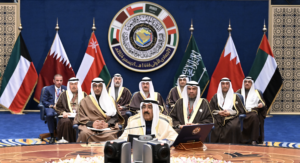Sudan peace talks with SPLM-N El Hilu suspended
The South Sudanese team in Juba mediating the peace talks between Khartoum and the Sudan People’s Liberation Movement-North faction under the leadership of Abdelaziz El Hilu (SPLM-N El Hilu) has suspended the negotiations, until they have talked with the movement’s leadership. The talks between the Sudanese government and the Sudan Revolutionary Front (SRF) rebel alliance are expected to conclude soon.
 Lt Gen Mohamed Hamadan ‘Hemeti’, Deputy President of the Sovereign Council, and Commander-in-Chief of the paramilitary Rapid Support Forces (SUNA)
Lt Gen Mohamed Hamadan ‘Hemeti’, Deputy President of the Sovereign Council, and Commander-in-Chief of the paramilitary Rapid Support Forces (SUNA)
The South Sudanese team in Juba mediating the peace talks between Khartoum and the Sudan People’s Liberation Movement-North faction under the leadership of Abdelaziz El Hilu (SPLM-N El Hilu) has suspended the negotiations, until they have talked with the movement's leadership. The talks between the Sudanese government and the Sudan Revolutionary Front (SRF) rebel alliance are expected to conclude soon.
On Thursday, the SPLM-N El Hilu withdrew from the negotiations with the Sudanese government delegation, in protest against the chairmanship by Lt Gen Mohamed Hamadan ‘Hemeti’, who is not only Deputy President of the Sovereign Council, but also Commander of the paramilitary Rapid Support Forces (RSF).
The recent involvement of RSF forces in violence in South Kordofan, along with “heinous violations” committed against unarmed civilians in various parts of Sudan, have led the rebel group to withdraw. Hemeti “lacks neutrality and is not qualified to lead the negotiation delegation”, the SPLM-N said in an official complaint on August 18.
The head of the South Sudanese mediation team, Tut Galuak, announced yesterday that Juba decided to freeze the Sudanese government-SPLM-N El Hilu negotiation track after the rebel group “surprised the mediation” with the request to intervene and call for the replacement of the Sudanese government negotiating team’s chairman.
In a press statement, he said that the movement earlier presented a clear opinion about the contents of the negotiations but did not put the head of the government delegation in question. “We explained the movement’s delegation that this matter is not within our competence,” Galuak stated. “No party has the right to determine the head of the negotiation team for any other party. This is the inherent right of every party, government, or movement.”
The SPLM-N El Hilu delegation will remain in the South Sudanese capital, while the mediation team will contact the movement’s leadership, the mediator added.
Galuak further said that the negotiations between Khartoum and the SRF concerning the Darfur and South Kordofan/Blue Nile state tracks are continuing.
Govt ‘fully involved’
In Khartoum, Prime Minister Abdallah Hamdok denied that the Council of Ministers decided to leave the peace talks to the military component of the Sovereign Council.
“The government is in constant contact with the armed movements participating in the negotiations, as well as the rebel groups that abstained, including SPLM-N El Hilu and the mainstream Sudan Liberation Movement headed by Abdelwahid El Nur,” he said. “The negotiating files proposed by the government delegation were all prepared by the Cabinet.”
Hamdok said he expects that a comprehensive peace accord will put an end to the ethnic conflicts in parts of the country, and expressed his optimism about reaching an agreement soon.
International partners
Yesterday, the international partners of the Sudanese peace negotiations in Juba submitted a proposal on the formula of the final Sudan Peace Agreement.
Mediator Dhieu Mathok told reporters in Juba that the parties have been given two days to study and comment on the proposal.
Furthermore, the delegation of the United Arab Emirates to the Juba Peace Forum held talks with the Darfur Justice and Equality Movement (JEM) about peace and stability in Sudan, and in Darfur in particular.
The movement’s official spokesman, Mutasim Saleh, described the meeting as “frank and transparent” in a press statement yesterday. He called on the Gulf states “to actively support the reconstruction of the country, the demobilisation of the rebel combatants, and the establishment of a fund to support the families of people killed during the protests”.
Radio Dabanga’s editorial independence means that we can continue to provide factual updates about political developments to Sudanese and international actors, educate people about how to avoid outbreaks of infectious diseases, and provide a window to the world for those in all corners of Sudan. Support Radio Dabanga for as little as €2.50, the equivalent of a cup of coffee.












 and then
and then